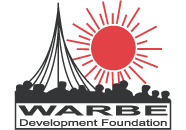The Economic and Social Council (ECOSOC)
The Economic and Social Council (ECOSOC) is the United Nations’ central platform for reflection, debate, and innovative thinking on sustainable development. It is one of the six main organs of the United Nations established by the UN Charter in 1946, is the principal body for coordination, policy review, policy dialogue and recommendations on economic, social and environmental issues, as well as for implementation of the internationally agreed development goals. It serves as the central mechanism for the activities of the United Nations system and its specialized agencies, and supervises the subsidiary and expert bodies in the economic, social and environmental fields. ECOSOC has undergone reforms (A/RES/61/16, A/RES/68/1) in the last decade to strengthen the Council and its working methods, giving special attention to the integrated and coordinated implementation of, and follow-up to, the outcomes of all major United Nations conferences summits in the economic, social, environmental and related fields.
ECOSOC engages a wide variety of stakeholders – policymakers, parliamentarians, academics, major groups, foundations, business sector representatives and 3,200+ registered non-governmental organizations – in a productive dialogue on sustainable development through a programmatic cycle of meetings. The work of the Council is guided by an issue-based approach, and there is an annual theme that accompanies each programmatic cycle, ensuring a sustained and focused discussion among multiple stakeholders.





